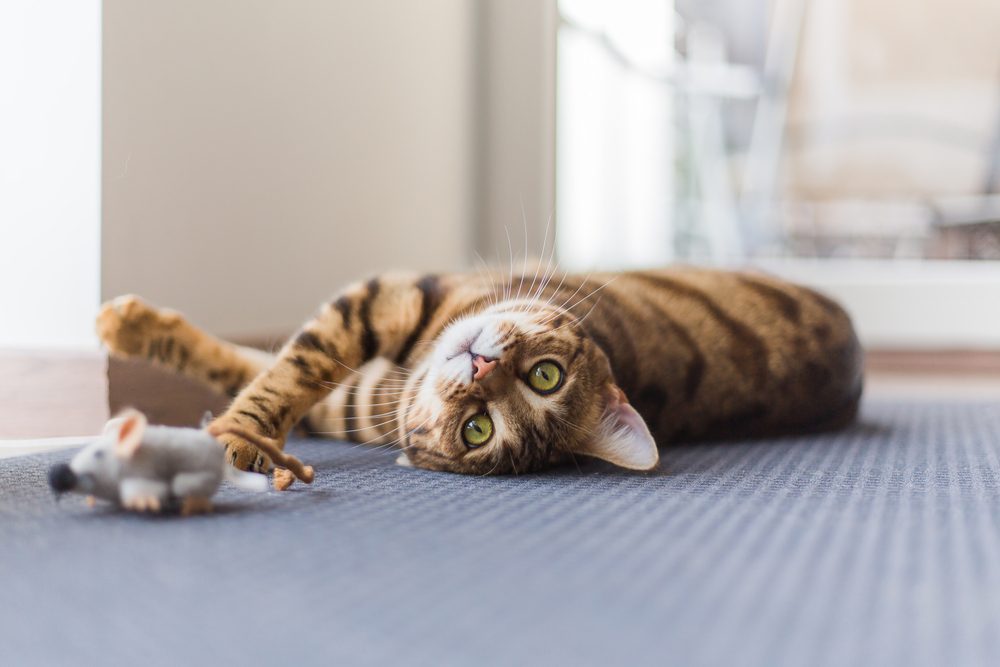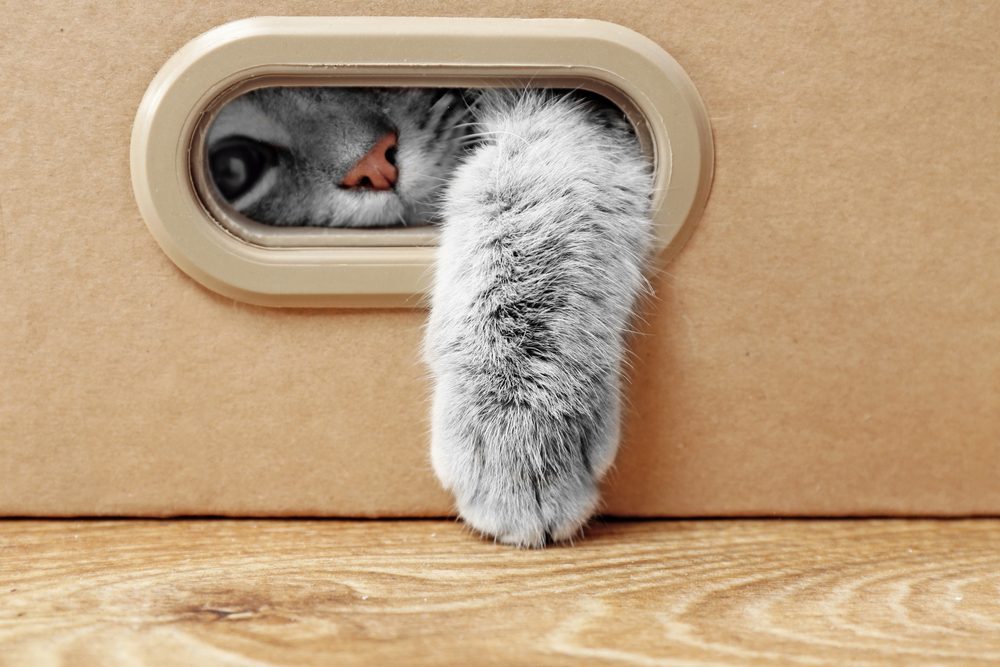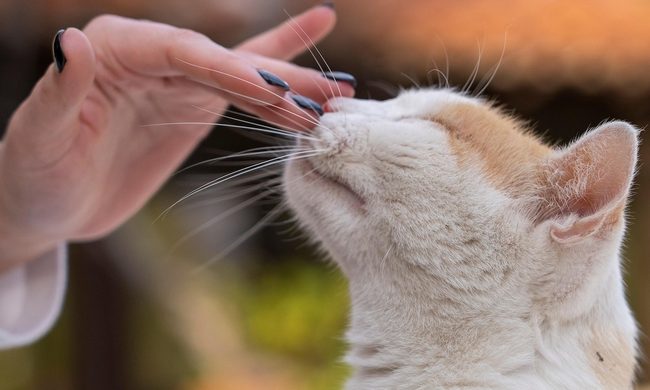It isn’t hard to be amused while watching your cat at play. Clearly, there are times she thinks she’s a big cat fending for herself in the wild — the stealthy way she walks, the merciless way she pounces on her unsuspecting toy, and, sometimes, the aggressive way she grabs your arm with her front legs and bites while she kicks you with her hind legs.
Ouch.
This last move, known as a bunny kick, can be confusing as well as painful, especially if your cat still has a full set of claws. Why would your kitty be so sweet and loving one moment and become so fierce and aggressive toward you in the next? This is why cats bunny-kick and what you can do to discourage the behavior.

A look at bunny kicks
Why would a domestic kitty want to bunny-kick her favorite human? Relax. It’s not personal. It’s instinctual.
While bunny kicking can be playful, it’s also the way cats fight. When a cat lies on her back, her stomach is completely exposed; however, she also has all four sets of claws and her teeth available to inflict as much damage as possible on her adversary.
You’ll notice the same move used by kittens at play. Learning how to bunny-kick is an essential survival skill, even among domesticated cats. When one kitten becomes too aggressive, the other will simply end the session by walking away — a signal that the game has gotten too rough.
Cats have strong prey drives
This evolutionary trait is innate. You’ll find domestic momma cats teaching their babies the basics of how to hunt and stalk live prey as soon as the kittens are old enough to follow her around.
And those “little surprises” your cat brings you from outside? Experts say it’s simply a gesture of their regard for you. As family, your cat believes it’s her responsibility to provide for you. It’s also her way of showing you how to hunt, just like she would her kittens.
The best thing you can do is thank your kitty for the present and dispose of it discreetly when she isn’t looking. When it comes to bunny kicks, however, experts suggest you take a different approach.

Why you should discourage bunny kicking
Chances are, your cat is just being playful, especially if her ears aren’t pinned to her head, and she isn’t hissing or snarling. But behaviorists strongly recommend discouraging the bunny kicking habit when it occurs. In the wild, it’s used during hunting as well as defensively when attacked by a predator. At home, it can lead to more aggressive behavior toward you or members of your family.
Regardless of your cat’s demeanor, bunny kicking is an undesirable habit to form. Not only can her claws inflict some damage, but it’s also important for her to understand that kind of behavior is unacceptable.
Here’s how to redirect your cat’s behavior when a bunny kicking episode occurs:
- Use toys instead of your hand to play with your cat. Wand toys are particularly effective because you can manipulate them far from kitty’s teeth and claws.
- Purchase a few kick toys, which allow her to engage in this instinctual behavior without being aggressive toward you or your family members.
- When she bites, say “no” firmly and stop playtime for a few minutes. This is how her littermates treated her when she would bite too hard, so she will understand what’s going on.
- If she does latch on to your arm or leg, gently push her away. In the wild, prey will try to flee (pull away), so a pushing action is confusing enough to make her let go.
Bunny kicking often occurs when a cat is lying on her back and her human reaches out, innocently, to rub her belly. The action awakens a primal instinct, which, when activated, is either an innocent attempt at play or a display of explicit displeasure regarding belly rubs.
Should you stop reinforcing your kitty’s hunting and stalking instincts altogether? Quite the contrary. Engaging your cat with toys that cater to her desire to chase and catch might be just what she needs to satisfy this instinctual desire. A tired cat is a happy cat, and one that’s likely to curl up on your lap and purr instead of looking for ways to satisfy a centuries-old instinct to hunt and defend.



